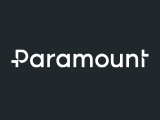By Tim Stringer, director, Integral Build.
This year the Queen celebrates her 90th birthday. Not for a moment do I imagine she is reflecting on the changing face of the office over that time. But if she were, she’d think about what have we experienced and what have we learned about the place where many of us spend a third of our waking hours, five days a week? As today’s technology means we can increasingly work anywhere remotely, is the office having an identity crisis? 
Take-up of office space in Bristol suggests not. We’re seeing an unprecedented demand for high-end workspace in the centre. And with a squeeze on the availability of new or high-quality refurbished space, rents are rising with demand.
When the Queen was born, in 1926, office work was booming, particularly among women. Working in the typing pool or on the switchboard was seen as a career: the women mostly came from a middle-class background, but an increasing number of working-class women managed to obtain the respected status of white-collar workers.
Even then there were ‘high-end’ touches among what was a pretty uninspiring layout, most people seated in rows, surrounded by piles of paper. The Underwood typewriter ribbon container came complete with a cosmetic mirror in the lid (which wouldn’t, of course, see the light of day today).
Fast forward to 1952, when the Queen came to the throne. While a lot of old equipment and machines were still around, post-war technology really came into play with accounting machines, dictating machines, reproducing equipment (the forerunner of the photocopier) and calculators.
Some of the stalwarts of office life such as staplers, hole punches and pencil sharpeners became mass produced items. It’s ironic that today we can Skype someone on the other side of the world in our acoustically sound-proofed boardroom with self-adjusting air temperature control and light sensors, but we still trawl round desks trying to find a stapler that works.
The office is still very much the engine room of many businesses – where the board meetings are held, the paperwork processed, the bills paid and the decisions made.
Technology and trends may have changed, but for many the office remains the central focal point. As Lucy Kellaway said in her recent BBC Radio 4 programme History of Office Life: “Office work gives our life structure, purpose and, at a pinch, meaning. It has made us all middle class . . . it has also raised standards in education and been the reason for many technological advances.”





























